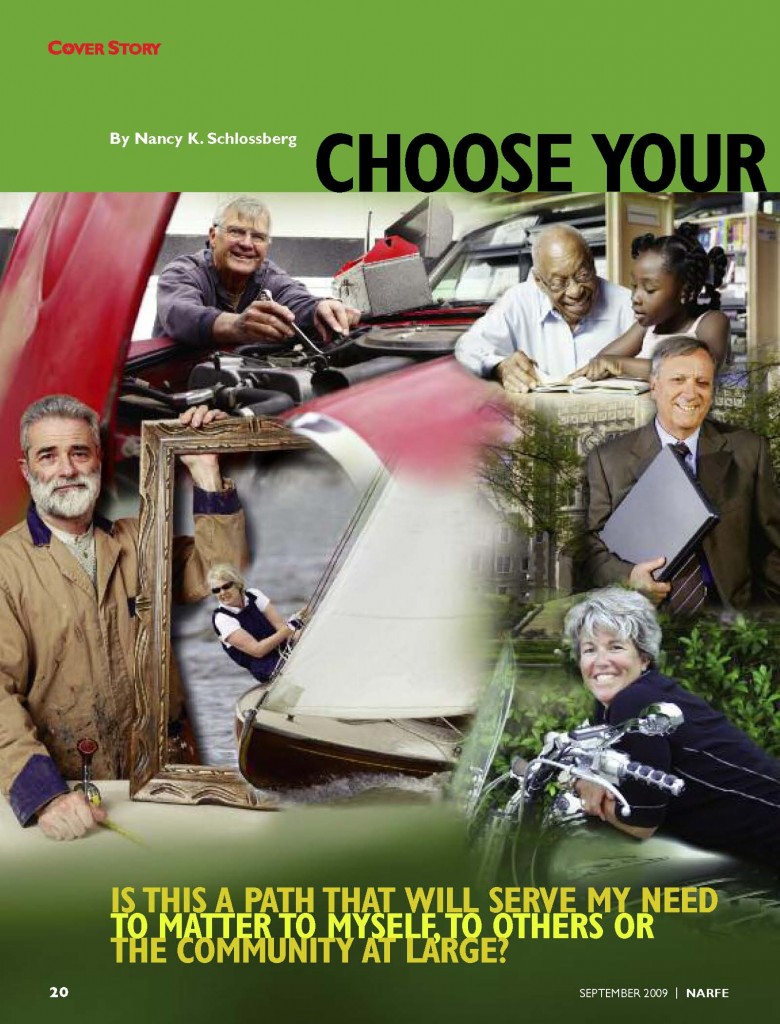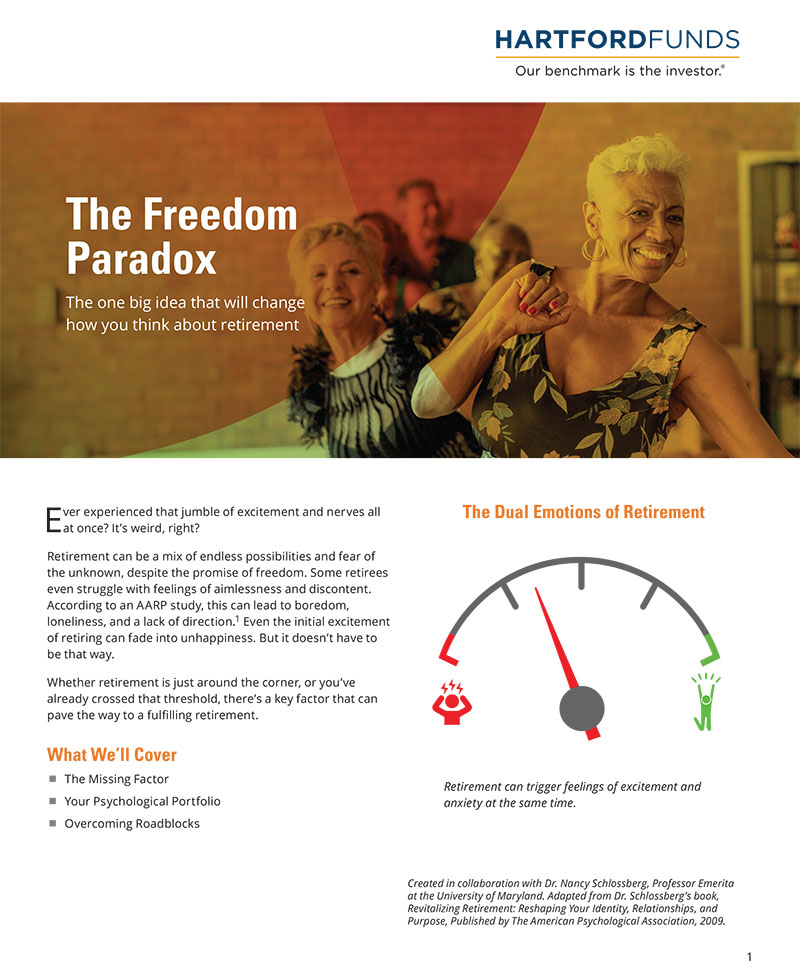My Take on Happiness—You need to “Matter”
The whole world is looking for happiness. A recent book giving specific instructions on how to obtain happiness is number 1 on the best seller list, a major PBS show “The Emotional Life” highlights the different definitions of happiness that ordinary people hold, and the ways scholars are studying the topic. Is it money, fame, power? Is it surviving an overwhelming crisis, experiencing a beautiful sunset, a observing a butterfly emerging? It is all of these things yet, happiness is still elusive, slippery, ever-changing. And when you feel it, will it last?
Well, I too have a take on what makes for happiness. My research for my book, Revitalizing Retirement concluded that you will have lasting happiness if you feel you “matter.” Let me explain. Morris Rosenberg, the late distinguished Sociologist from the University of Maryland, coined the phrase “mattering”—the need to feel noticed, appreciated, and depended upon—as one that describes a universal, and often overlooked, motive that influences our thinking and behavior. It is critical to believe that we count in other’s lives and feel we make a difference to them. Rosenberg found that teenagers who felt they mattered to teachers, peers, parents were less likely to engage in delinquent behavior than those who did not feel they mattered to others. He suggested, and I found, that retirees who no longer feel appreciated do not do as well as those who feel connected. With students at the University of Maryland, we studied mattering and retention of adult learners. And, not surprisingly, we found that those institutions with practices, programs, and policies that were responsive to the needs of adults, had a higher percentage of adults who completed their programs.
The universal need for happiness and the universal need to feel noticed and appreciated go hand in hand. You can have money and jewels, but if you feel sidelined, out of the loop you will be unhappy. So here are some happiness tips:
A Mattering Recipe—A Way for You to Feel Appreciated
1. Get Involved, Stay Involved—Volunteer, work part-time, “get out there” and become essential to a group or organization;
2. Harness the Power of Invitation—Take advantage of invitations. You never know where they will lead;
3. 3. Take Initiative—Want to be part of an organization, volunteer as an intern;
4. 4. Make Others Feel They Matter—Show your appreciation for what others have done, and even make that appreciation public.
Does this guarantee total bliss? No, but it is a start.
I would love to hear from you about ways you feel you matter and ways you have helped others feel they matter.
Choosing Your Retirement
Below you will find my cover story from the September issue of NARFE.
Cover Story: Choosing Your Retirement
(please right click to download and share)
Workateering
A New Wrinkle for Civic Engagement of Seniors
According to a report, The New Volunteer Workforce (2009), non-profits “desperately” need volunteers; yet every year volunteers are leaving their posts in growing numbers. To stem this tide, the report included as one of its suggestions a “hybrid” plan of providing stipends for volunteers.
I spent hours volunteering, doing many things I used to do as a professional but receiving no pay–only the joy of feeling that I was contributing to society. With the downward spiraling economy, I began to resent volunteering. I felt guilty since after all, wasn’t this the time to give back, to feel grateful for all that I had received over my life?
Then something amazing happened that turned everything around. Robert Carter, CEO of the Senior Friendship Centers in Florida, and Dennis Stover, Vice President, invited me to work on a short-term project as a “workateer.” They offered me a small amount of money and coined the phrase. According to Dennis Stover, “workateering” is a concept that bridges “the experienced worker to the volunteer role and adds value and benefit to what volunteers are providing organizations. A small stipend is paid for the work the volunteer does.” It provides a transition from paid work to volunteering. Hence– work with some dollars attached connects the person with past professional life while beginning a life of mostly volunteering one’s skills and talents. Stover continues, “We hope this ‘hybrid’ concept adds to the discussion of how we approach volunteerism as we look to Boomers retiring and wanting purpose in their next life phase.”
Did this make a difference to me? You bet it did. I feel like a professional, that my work is valued, and that I am still a player. I think this is a concept that could really change the way volunteers see themselves. It would be a win-win situation. Volunteers would feel important to the organization, and organizations would get increased productivity—and all for very little money.
Nancy K. Schlossberg
The first “workateer” for the Senior Friendship Centers
Author, Revitalizing Retirement: Reshaping Your Identity, Relationships, and Purpose
The New Volunteer Workforce, (Winter, 2009). David Eisner, Robert T. Grimm Jr., Shannon Maynard, & Susannah Washburn. Stanford Social Innovation Review



